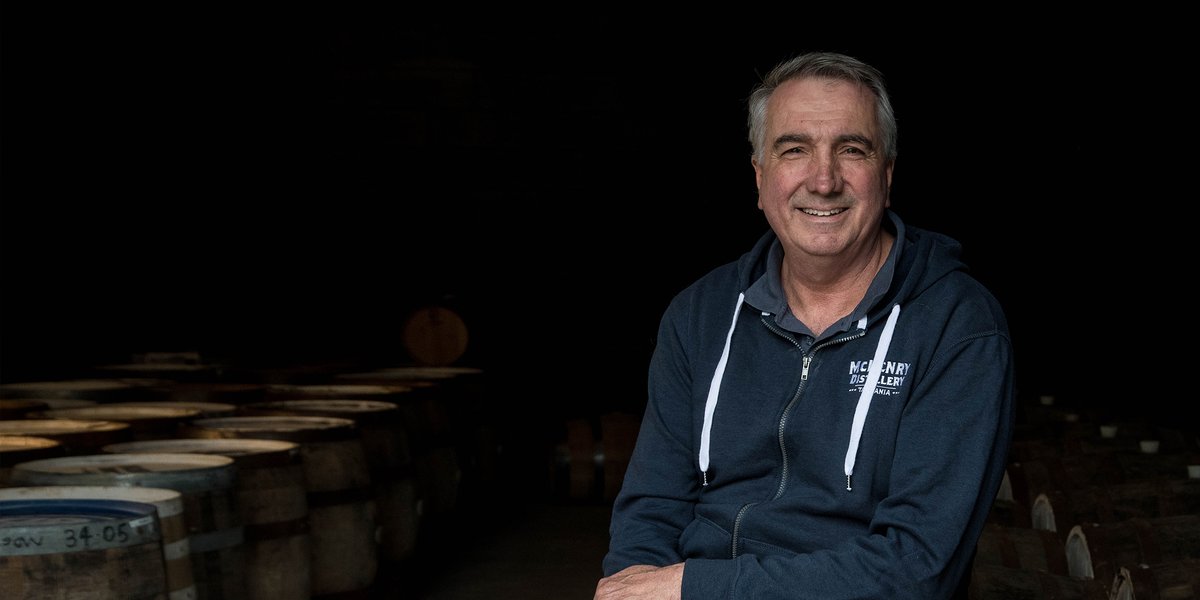Ashley & Jane Huntington
"We uprooted ourselves and moved here, straight from France. We realised when we landed... Oh, there are hops everywhere. And not a brewery in sight. Okay, we might need to change that."
“We live in a world that is processed, controlled, always the same. The fact that it's got seasonal variation, or the mood of the brewer is different, and he wants to try something else… isn't that so much more interesting and exciting?”
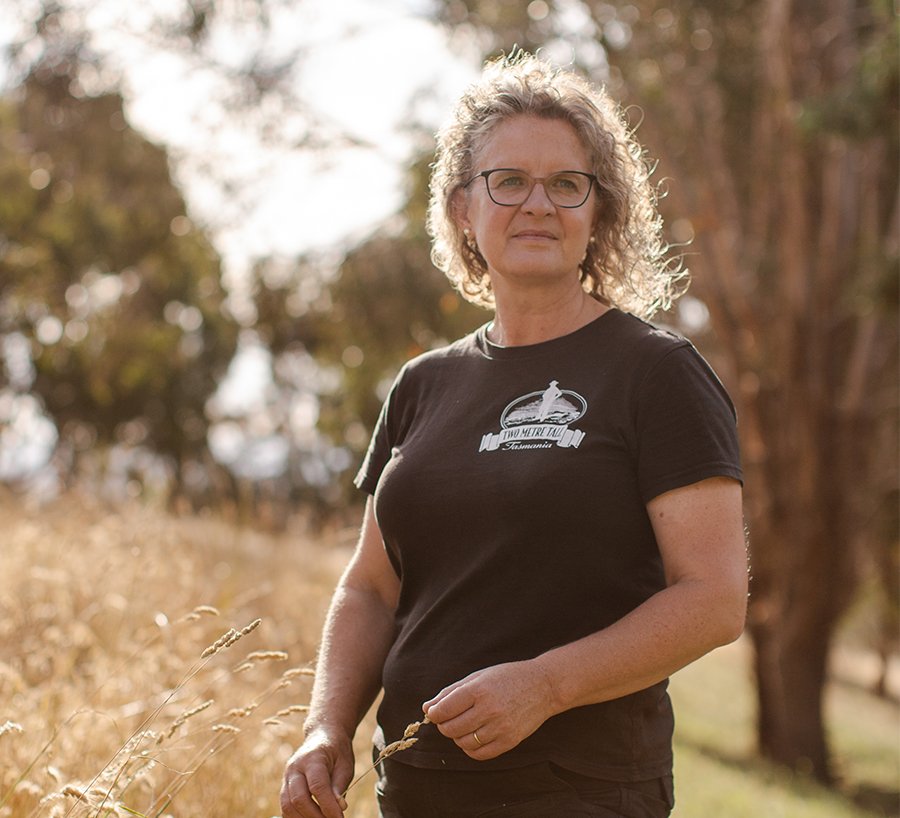
Jane and Ashley Huntington moved to Tasmania with a dream of making wine. They settled on Southern Tasmania due to the drier, arid climate, and bought a parcel of land in the Derwent Valley with a beautiful, north-facing slope – perfect for growing grapes. There, however, they discovered something else.
Hops. Hops, as far as the eye could see.
Jane and Ashley both grew up in country Victoria. They met at university, and Jane’s appreciation of good food and wine rubbed off on Ashley, who studied organic chemistry and then winemaking. After school they travelled. They visited Tasmania together for the first time in 1998, so Ashley could do a vintage on the north east coast. They spent seven years building a life in the south of France – Ashley making wine and Jane teaching – and started a family. When they decided to move back to Australia in 2004 and begin their own enterprise, wine was the only thing on the radar.
Until they saw those hops.
“We uprooted ourselves and moved here, straight from France,” says Jane. “We realised when we landed... ‘Oh, there are hops everywhere. And not a brewery in sight. Okay, we might need to change that.’"
Hops have been grown in the Derwent Valley for over 200 years. They were introduced from England in 1822 by a man named William Shoobridge, whose sons established the first commercial hop farms in Australia: Valleyfield and Bushy Park. By the time Jane and Ashley arrived in 2004, the local hops industry had gone through a tumultuous century and a half. Bushy Park was still home to Australia’s largest hops grower, but new hop varieties bred on the mainland – designed for mass production of a more mainstream beer – had wiped out the smaller growers. Small, special, interesting craft beers were yet to take off.
“18 years ago, when we arrived, there were no small brewers in Tasmania,” says Jane. “Moo Brew started around the same time we did, but there was nobody else here apart from Cascade Brewery and Boags Brewery.
“We were very fortunate to land on the doorstep of Dick and Kate Warner, who own Valleyfield in New Norfolk. Dick grew up with his father growing hops, and he then took over and kept growing. He was a wealth of knowledge on hops and how to grow them, and had a real desire to encourage us into that.”
Ashley loved winemaking, but he couldn’t ignore the hops on their doorstep. He started dabbling in brewing beer instead.
“We heard of one winemaker from the East Coast who was using St. Ives Brewery, but just on a brew-by-brew basis. Ashley rings him up and says, ‘I hear you're brewing the odd beer. Can I come and have a play?’ And the rest is history.”
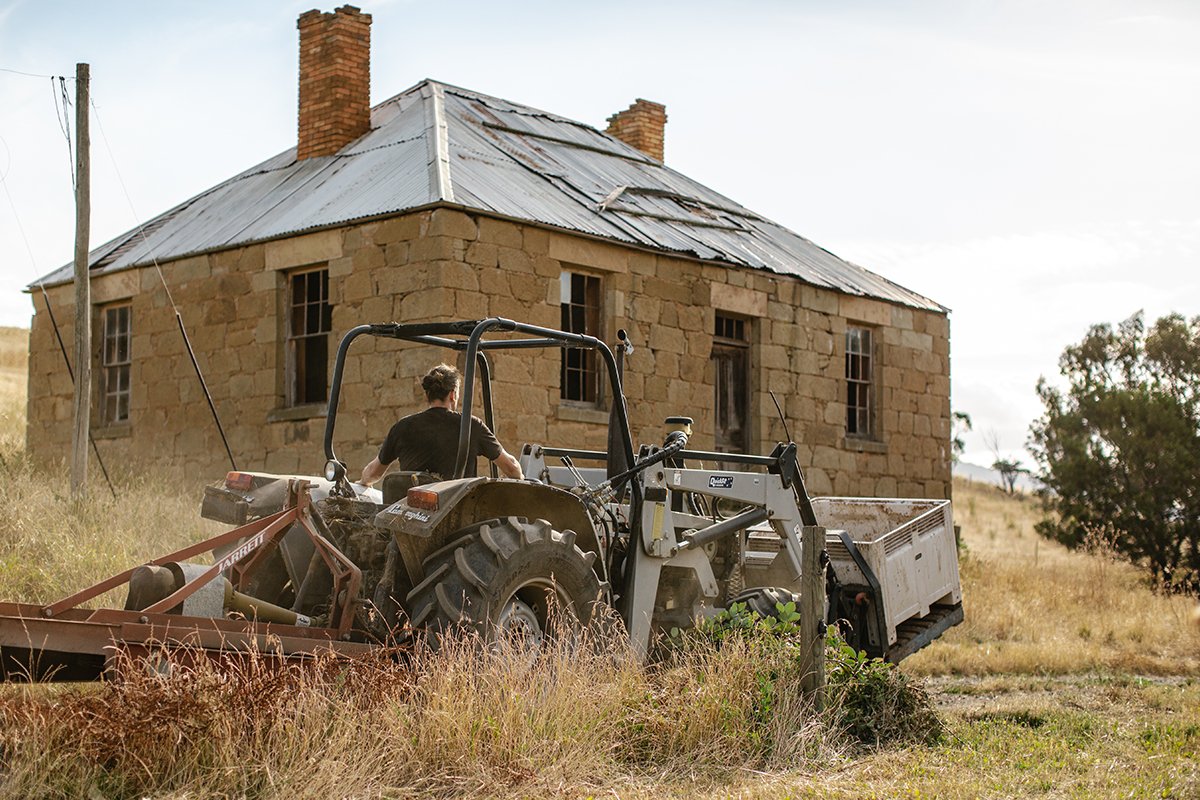
Two Metre Tall Brewery—named for Ashley’s towering height—is not for everyone. They use only raw ingredients from their farm, the valley, and from across Tasmania: malted grains, raw grains, dried hops, water, and wild yeast. They avoid the preservatives and artificial carbonation often used by large, commercial breweries, instead opting to let the natural fermentation work its magic. It’s a long process, but Jane says that’s exactly why they do it.
“With our ales, the ciders, the meads, and our barrel-aged, fermented beverages, we're looking for an expression of the ingredients that are grown right here,” she says. “There's no point setting up a beverage business in Tasmania but not using this amazing produce that we have around us. If you take the slow road, you're going to be rewarded with so much more complexity. So much more depth of flavour. So many layers in that beverage.”
Complexity and depth of flavour can be alienating if you’re not expecting them. When Ashley first started dabbling in fruits and wild fermentation, traditionalists were not kind to them. The sour beer and natural wine craze was still a few years away, and commercial brewers thought Two Metre Tall’s products were “off”. The beers were too wild, too unexpected, and never tasted exactly the same. People didn’t understand that… that was kinda the point.
“We live in a world that is processed, controlled, always the same. Those early criticisms were always ‘Oh, that's a great beer. But can you do it again?’ but that's not what we're aiming to do. The fact that it's got seasonal variation, or the mood of the brewer is different, and he wants to try something else… isn't that so much more interesting and exciting?”
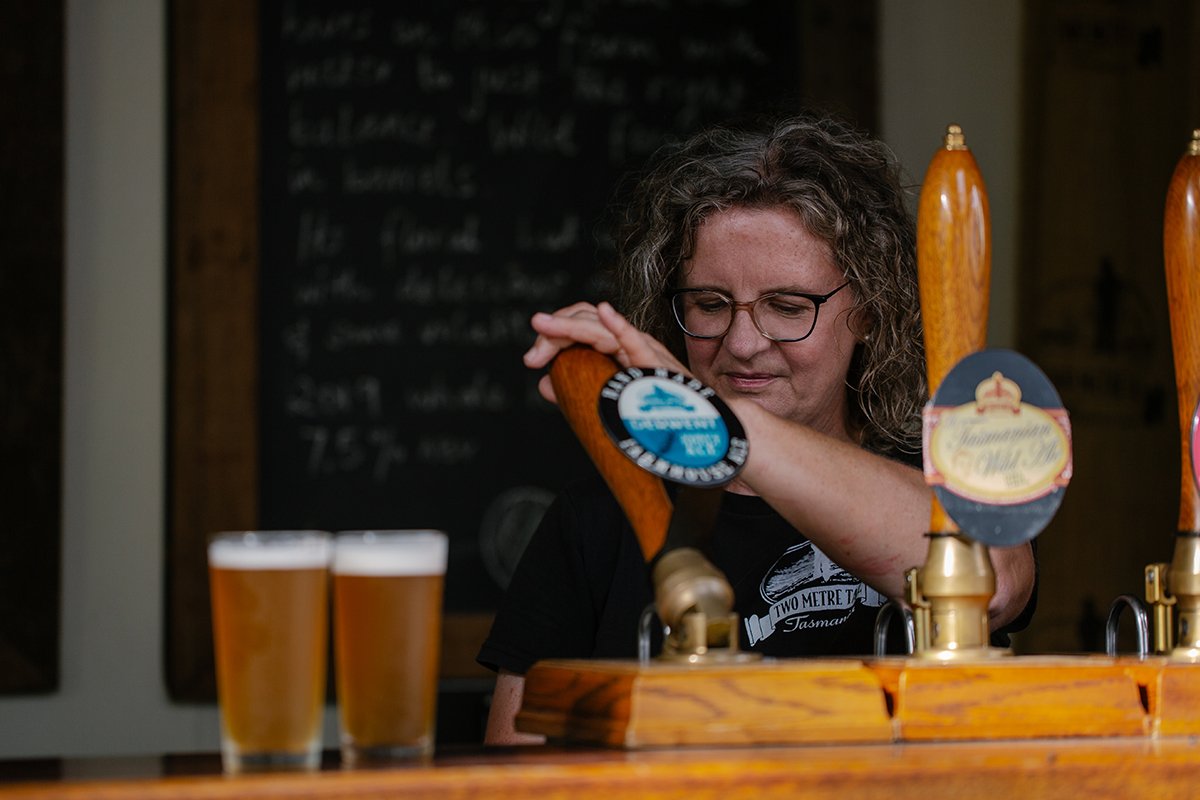
In 2012, Ashley was awarded a Churchill Fellowship to study the use of fruit in beer. Jane and Ashley spent two months in Belgium and the UK, and discovered other people were doing the same thing – successfully.
“We walked into these breweries – like Cantillon, they're rock stars in America. To walk into that brewery, and stick your nose in a glass of Cantillon, and realise, ‘They’ve got the same problem we've got, around the other side of the world!’ It was a light bulb moment. It gave us confidence, and a language to use, and just meant we came back here and bought more barrels and went further down that barrel-aged, wild ferment rabbit hole.”
Today, Two Metre Tall is still a two-person operation. Ashley’s winemaker past is now complemented by being a brewer, a fermenter, and a farmer – but he still has plans to plant a vineyard on that beautiful, north-facing slope. Jane is now a farmer, a production hand, a salesperson, and a face of hospitality, but she still gets to teach; every time a customer comes to their cellar door in the Derwent Valley and asks for “just a beer”.
“All we ask people to do when they come here is to have an open mind, that’s what our cellar door is all about. I know how far it's taking some people out of their comfort zone. I want to hold their hand and travel them down that path, and give them permission to not like it. They’re complex flavours. It happens all the time; people who come and say, ‘I just want a beer’ or even, ‘Oh, no, sorry, I don't drink beer.’ My response to that is, well, we don't make beer. Maybe you should try some.”
Ashley & Jane are featured in partnership with our friends in the Department of State Growth Tasmanian Trade team.

We worked with north west Tasmanian photographers Moon Cheese Studio and southern Tasmanian cinematographer Joshua Lamont ACS for this Tasmanian story.
Read about more Tasmanians
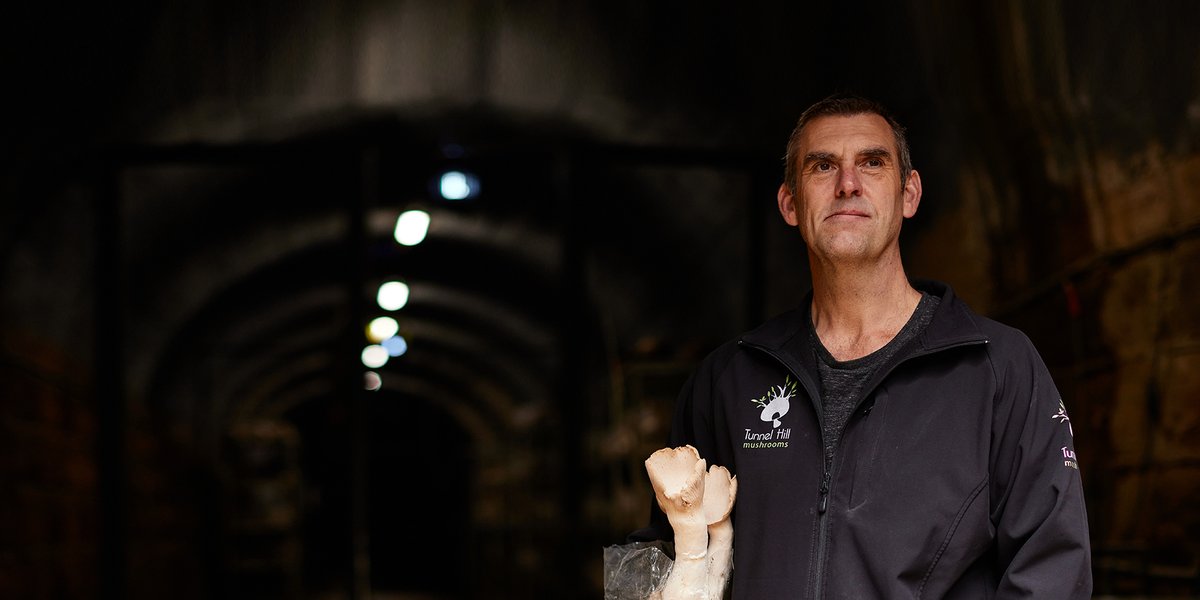
Dean Smith
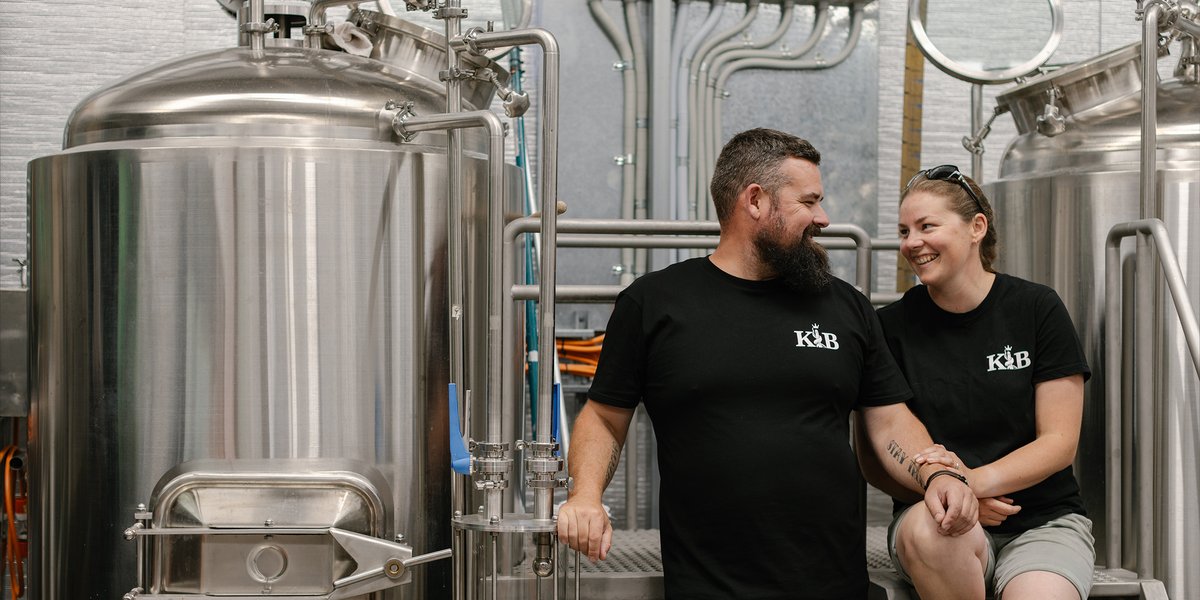
Sarah & Corey Brazendale
